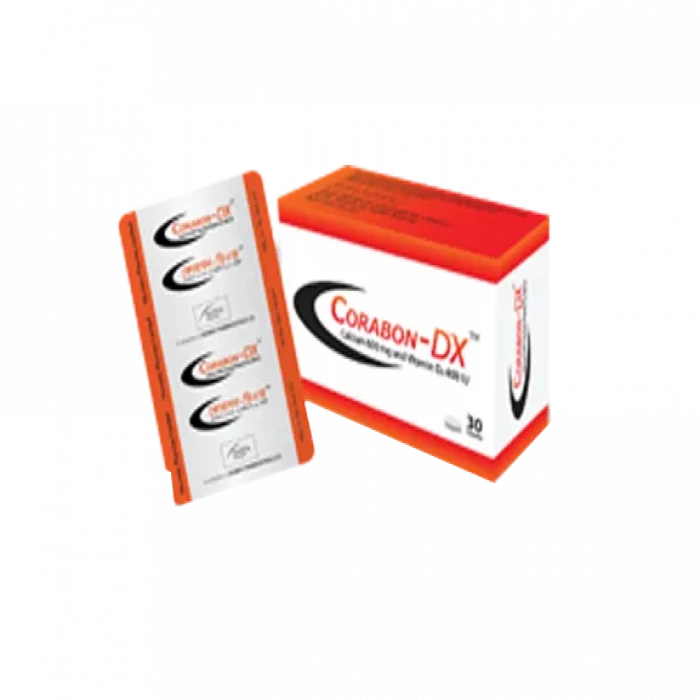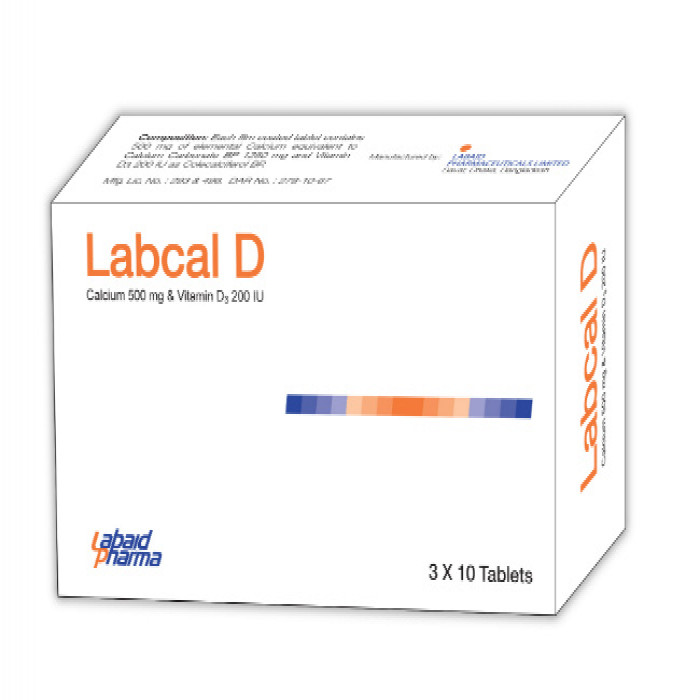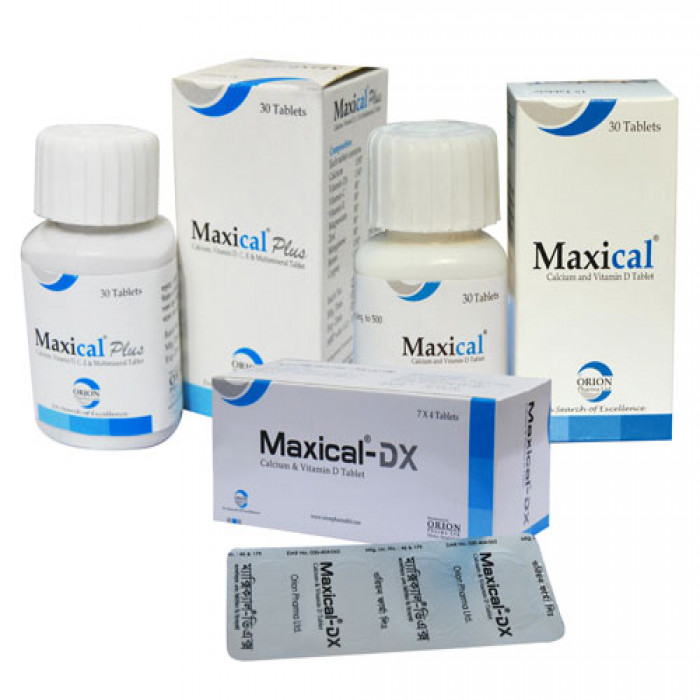
✔ 100% Authentic Product
👁️ Currently Viewing 4351
Calbo 500mg Tablet
Calbo 500mg Tablet is used in the treatment of Nutritional Deficiencies.
Discount
Price: ৳ 48
MRP:
৳
50
5%
Off

100% Genuine Products, Guaranteed

Safe & Secure Payments, Always

Fast, Secure & Efficient Delivery

Proper Packaging
 Cash on Delivery - All over Bangladesh
Cash on Delivery - All over Bangladesh Regular Delivery - 12-24 Hours, Dhaka City* Charge Tk.39-59
Regular Delivery - 12-24 Hours, Dhaka City* Charge Tk.39-59 Regular Delivery - 24-48 Hours, Other Cities* Charge Tk.99-110
Regular Delivery - 24-48 Hours, Other Cities* Charge Tk.99-110
🌙 রমযান অফার 🌙
 ফ্রি ডেলিভারিঃ - ৭৯৯ টাকা+ অর্ডারে, ঢাকা
শহরে
ফ্রি ডেলিভারিঃ - ৭৯৯ টাকা+ অর্ডারে, ঢাকা
শহরে ফ্রি ডেলিভারিঃ - ২৭৯৯ টাকা+ অর্ডারে, ঢাকার
বাহিরে
ফ্রি ডেলিভারিঃ - ২৭৯৯ টাকা+ অর্ডারে, ঢাকার
বাহিরে
📲 মোবাইল অ্যাপ অর্ডারে সাশ্রয় বেশী
-
Google Play Store থেকে ডাউনলোড
-
Apple Store থেকে ডাউনলোড
100% Genuine Products, Guaranteed
Safe & Secure Payments, Always
Fast, Secure & Efficient Delivery
Proper Packaging
 Cash on Delivery - All over Bangladesh
Cash on Delivery - All over Bangladesh Regular Delivery - 12-24 Hours, Dhaka City* Charge Tk.39-59
Regular Delivery - 12-24 Hours, Dhaka City* Charge Tk.39-59 Regular Delivery - 24-48 Hours, Other Cities* Charge Tk.99-110
Regular Delivery - 24-48 Hours, Other Cities* Charge Tk.99-110 ফ্রি ডেলিভারিঃ - ৭৯৯ টাকা+ অর্ডারে, ঢাকা
শহরে
ফ্রি ডেলিভারিঃ - ৭৯৯ টাকা+ অর্ডারে, ঢাকা
শহরে ফ্রি ডেলিভারিঃ - ২৭৯৯ টাকা+ অর্ডারে, ঢাকার
বাহিরে
ফ্রি ডেলিভারিঃ - ২৭৯৯ টাকা+ অর্ডারে, ঢাকার
বাহিরে- Google Play Store থেকে ডাউনলোড
- Apple Store থেকে ডাউনলোড
🌙 রমযান অফার 🌙
📲 মোবাইল অ্যাপ অর্ডারে সাশ্রয় বেশী
✅ Description:
- Heartburn and Indigestion: Heartburn and indigestion are common symptoms of acid reflux, where stomach acid flows back into the esophagus, causing a burning sensation in the chest and discomfort in the upper abdomen.
- Calcium Deficiency (Hypocalcemia): Hypocalcemia refers to low levels of calcium in the blood. Calcium is essential for various bodily functions, including muscle contraction, nerve transmission, and bone health.
- Hyperphosphatemia: Hyperphosphatemia is a condition characterized by high levels of phosphate in the blood. It is often seen in individuals with kidney dysfunction or certain metabolic disorders.
- Calcium Supplement: Calcium supplements are used to provide additional calcium to individuals who may not be getting enough from their diet or have specific medical conditions that require supplementation.
- Stomach Upset: Stomach upset is a general term that includes symptoms like nausea, bloating, gas, or discomfort in the stomach area.
It's worth noting that calcium supplements, including calcium carbonate, are often used to address calcium deficiency and associated conditions like hypocalcemia and hyperphosphatemia. However, some individuals may experience stomach upset or heartburn as side effects when taking calcium supplements, especially if they are taken on an empty stomach or in excessive amounts.
To minimize stomach upset and improve the absorption of calcium supplements, they are often recommended to be taken with meals. Additionally, using antacids like calcium carbonate can also help relieve heartburn and indigestion symptoms.
As with any health concern, it's crucial to consult with a healthcare professional for an accurate diagnosis and appropriate treatment plan. If you are considering taking calcium supplements or experiencing any of the mentioned symptoms, seek guidance from your healthcare provider to determine the best course of action.
✔️ Uses of Calbo 500mg Tablet
- Malnutrition due to poor Nutritional Intake
- Low levels of calcium in the blood (mainly occur during pregnancy and lactation period)
✔️ How does Calbo 500mg Tablet work?
Calcium carbonate acts as a calcium supplement.
✔️ Side Effects of Calbo 500mg Tablet
- Nausea, vomiting
- Constipation
- Excess gas
- Irritability
- Loss of appetite
- Dry mouth
- Acid reflux
✔️ Quick Suggestions:
- Calcium Carbonate helps treat calcium deficiency.
- Do not take it within 1-2 hours of taking other medicines. Calcium may decrease the absorption of the other medicines.
- Do not take it within 2 hours of eating foods rich in oxalic acid (e.g. spinach), phosphate (e.g. bran), or phytic acid (e.g. whole cereals).
- Inform your doctor if you have problems with your kidneys.
✔️ Indication of Calbo 500mg Tablet
- For the treatment of calcium deficiency.
- As an adjuvant for the treatment and prevention of osteoporosis and bone disorders.
- As a supplement when the calcium requirement of the body is high such as in the elderly, after surgery, during pregnancy, and lactation.
✔️ Pharmacology
In the chemical reaction of calcium carbonate with gastric acid, which produces calcium chloride, water, and carbon dioxide. The reaction is as follows:
CaCO3 + 2HCl = CaCl2 + H2O + CO2
When calcium carbonate reacts with hydrochloric acid in the stomach, it raises the pH, reducing the acidity of the gastric environment. This increase in gastric pH can reduce the activity of pepsin, an enzyme involved in breaking down proteins in the stomach. By neutralizing gastric acid, calcium carbonate can help alleviate symptoms of acid reflux, heartburn, and indigestion.
It is worth noting that while calcium carbonate can be an effective and fast-acting antacid, its use should be approached with caution. As mentioned earlier, taking excessive amounts or using it for extended periods can have adverse effects, including hypercalcemia (high levels of calcium in the blood), alkalosis (elevated blood pH), and the rare but serious milk-alkali syndrome.
Furthermore, the absorption of oral calcium from calcium carbonate can vary from person to person, and up to 30% of the calcium load may be absorbed. This means that not all of the ingested calcium will be absorbed into the bloodstream.
✔️ Dosage & Administration of Calbo 500mg Tablet
The administration, adult dose, and renal dose instructions for cCalbo 500mg Tablet can be summarized as follows:
Administration:
- Calcium carbonate may be taken with or without food.
- Taking it with meals can enhance its absorption.
- Avoid consuming large amounts of fiber-rich food while taking calcium carbonate.
Adult Dose for Hyperacidity:
- Take 1-2 tablets as needed for relief from hyperacidity symptoms.
- The maximum daily dosage should not exceed 16 tablets.
- Tablets may be chewed or sucked for administration.
Adult Dose for Hyperphosphataemia in Chronic Renal Failure:
- Initial dose: 2.5 grams per day.
- The dosage may be increased up to 17 grams per day, administered in divided doses.
Renal Dose:
- For patients with renal impairment and creatinine clearance (CrCl) below 25 ml/min, dosage adjustments may be necessary based on serum calcium levels.
- Close monitoring of serum calcium levels is essential in such patients to avoid potential complications.
It is crucial to follow the prescribed dosage and administration instructions provided by a healthcare professional, especially for individuals with specific medical conditions or renal impairment. If there are any concerns or questions about the appropriate use of calcium carbonate, it is essential to consult a healthcare provider for personalized advice and dosage recommendations.
✔️ Interaction
- Milk-alkali syndrome and hypercalcemia: Co-administration of calcium carbonate with thiazide diuretics (which can increase calcium reabsorption) or excessive vitamin D intake can lead to elevated calcium levels in the blood, resulting in milk-alkali syndrome and hypercalcemia.
- Decreased absorption with corticosteroids: Taking calcium carbonate with corticosteroids may reduce the absorption of both calcium carbonate and corticosteroids, potentially compromising the effectiveness of the medications.
- Decreased absorption of other medications: Calcium carbonate can bind to certain medications, reducing their absorption and effectiveness. This includes tetracyclines (antibiotics), atenolol (beta-blocker), iron supplements, quinolone antibiotics, alendronate (used to treat osteoporosis), sodium fluoride, zinc supplements, and calcium-channel blockers (used to treat various cardiovascular conditions).
- Enhanced cardiac effects of digitalis glycosides: Calcium carbonate can increase the effects of digitalis glycosides (medications used to treat heart conditions). This can lead to digitalis intoxication, characterized by symptoms like nausea, vomiting, and abnormal heart rhythms.
Considering these interactions, it is crucial for healthcare providers to be aware of a patient's complete medication regimen and medical history to prevent potential adverse effects. Patients should inform their healthcare providers about all the medications and supplements they are taking to avoid harmful interactions.
✔️ Contraindications
- Hypercalcemia and hyperparathyroidism
- Hypercalciuria and nephrolithiasis
- Zollinger-Ellison syndrome
- Concomitant digoxin therapy (requires careful monitoring of serum calcium level)
✔️ Pregnancy & Lactation
Calcium-containing drugs, such as calcium carbonate, have been used during pregnancy and lactation for various reasons.
During Pregnancy:
Oral Calcium Supplementation: Pregnant women may require additional calcium to support the developing fetus and maintain their own bone health. Calcium is crucial for the formation of the baby's bones and teeth and plays a role in various physiological processes during pregnancy.
Antacid Therapy: Pregnancy can sometimes lead to heartburn or indigestion due to hormonal changes and pressure on the stomach from the growing uterus. Calcium carbonate is often used as an antacid to relieve these symptoms safely during pregnancy.
During Lactation:
Calcium Requirements: Breastfeeding women may have increased calcium needs to support milk production and provide sufficient calcium for their own bone health. Calcium carbonate or other calcium supplements may be recommended if the dietary intake is inadequate.
Antacid Use: If lactating women experience heartburn or indigestion, calcium carbonate can be used as an antacid, similar to its use during pregnancy.
It's important to note that while calcium supplementation or antacid therapy can be beneficial, it should always be done under the guidance of a healthcare professional. The dosage and duration of use should be based on individual needs and health considerations. Pregnant and lactating women should consult with their healthcare provider before starting any new medication or supplement to ensure it is safe and appropriate for their specific situation.
Additionally, calcium intake should ideally come from a balanced diet, including calcium-rich foods such as dairy products, leafy green vegetables, and fortified products, along with appropriate prenatal or postnatal supplements if needed.
✔️ Precautions & Warnings
- Hypercalcemia: Excessive calcium intake can lead to hypercalcemia, a condition characterized by high levels of calcium in the blood. If hypercalcemia occurs due to calcium supplementation, discontinuing the drug is usually sufficient to return serum calcium concentrations to normal.
- Cautious Use in Certain Conditions: Calcium salts should be used with caution in patients with conditions such as sarcoidosis, renal or cardiac disease, and those receiving cardiac glycosides (medications used to treat heart conditions). These conditions can increase the risk of hypercalcemia or other adverse effects.
- Renal Impairment: In patients with renal impairment, caution is advised while using calcium-containing drugs, as impaired kidney function may affect calcium metabolism and increase the risk of hypercalcemia.
- Hypoparathyroidism Disease: Patients with hypoparathyroidism (reduced parathyroid hormone production) may require calcium supplementation. However, the dosage should be carefully adjusted to prevent hypercalcemia.
- Impaired Calcium Absorption: In conditions like achlorhydria (lack of stomach acid production), calcium absorption may be impaired. In such cases, using an alternate salt and taking calcium with food can enhance absorption.
- History of Kidney Stones: Patients with a history of kidney stones should use calcium-containing drugs with caution, as excessive calcium intake may contribute to the formation of new stones.
- Lactation: Calcium supplementation is generally considered safe during lactation. However, it is important to note that calcium can cross the placenta during pregnancy and be present in breast milk. Therefore, appropriate dosage and supervision may be necessary during this period.
✔️ Storage Conditions
Store in a cool, dry place at a controlled room temperature. Keep it out of the reach of children
⚠️Disclaimer:
At ePharma, we’re committed to providing accurate and accessible health information. However, all content is intended for informational purposes only and should not replace medical advice from a qualified physician. Please consult your healthcare provider for personalized guidance. We aim to support, not substitute, the doctor-patient relationship.
























